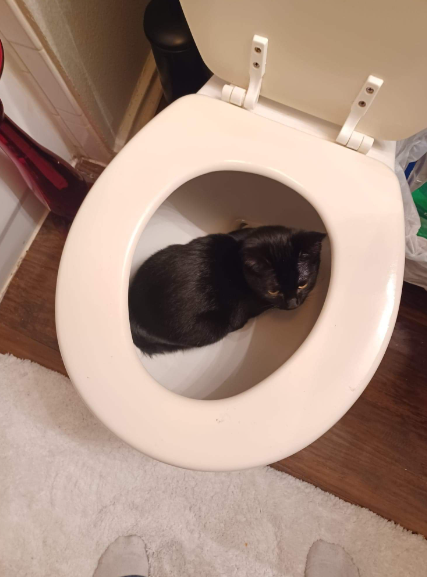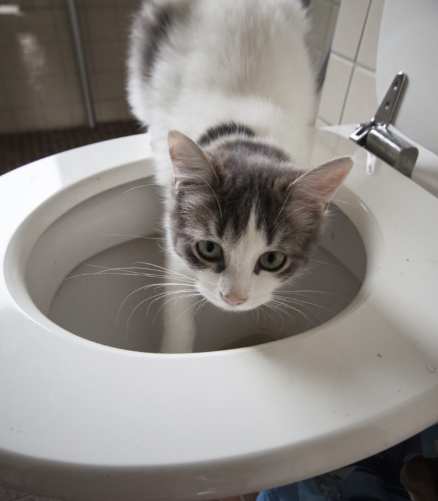Should You Be Locking Cat In Bathroom At Night?
Should You Be Locking Cat In Bathroom At Night?
Ah, the age-old feline dilemma: the nighttime symphony of meows, frantic zoomies, and playful attacks on your sleep-paralyzed toes. It's enough to make even the most devoted cat lover contemplate drastic measures, like, say, locking your furry friend in the bathroom at night. But wait! Before you slam that door shut, let's delve into the furry labyrinth of this controversial practice.
So, should you be locking cat in bathroom at night? As cat owners ourselves, we know that cats can be curious creatures at times.
The Case for Bathroom Banishment:
On the surface, locking your cat in the bathroom overnight seems like a win-win:
Peaceful Sleep: No more kitty claws kneading your face or midnight serenades. Blissful slumber, at last!
Confined Chaos: Destructive scratching on furniture? Unchecked hairball explosions? The bathroom becomes a designated "messy zone."
Litter Box Logistics: Easier cleaning with everything contained in one room.
Unfurling the Drawbacks:
Can I Keep My Cat In A Bathroom At Night?
Simply put, yes you can keep your cat in a bathroom at night. However, you need to be cautious of numerous other factors before doing so
Cats are crepuscular, which means that they are active at dusk and down. This sleeping pattern of kittens can be disruptive to your own sleep schedule.
If your cat is very energetic and constantly wakes you up in the middle of the night, you can prepare a separate room for her after ensuring that she will be safe there.But, like a playful cat chasing a laser pointer, this seemingly purrfect solution might be leading you down a slippery slope:
Stressful Confinement: Cats are territorial creatures, and confinement can trigger anxiety and stress. Imagine being locked in a bathroom all night!
Elimination Issues: Stress can exacerbate litter box issues, leading to accidents outside the designated zone. Remember, a stressed cat is no one's friend.
Loneliness and Boredom: Your cat craves your company and stimulation. Depriving them of both can lead to behavioral problems like excessive meowing or vocalizations.
Beyond the Bathroom Door: Alternative Solutions
Before reaching for the doorknob, consider these cat-approved options:
Create a Cat Sanctuary: Dedicate a quiet room or space with comfortable bedding, scratching posts, and enticing toys. Make it their nighttime haven.
Tire Them Out: Engage your cat in playtime before bedtime. A tired cat is a sleepy cat, and hopefully, a quiet one.
Address Underlying Issues: Is your cat's nighttime behavior a symptom of boredom, anxiety, or a medical condition? Consult your veterinarian for tailored advice.
Open Communication is Key:
Remember, communication is key, even with your furry companions. Talk to your cat! Use calming tones, positive reinforcement, and gradually introduce any changes to their routine.
In the End, Listen to Your Cat:
Ultimately, the decision of whether or not to lock your cat in the bathroom is a personal one. But listen to your feline friend. Observe their behavior, consider their needs, and explore alternative solutions before shutting them out, literally and figuratively. Remember, a happy and well-adjusted cat makes for a happier and more peaceful home for everyone.
So, the next time the nighttime cat chorus starts up, resist the urge to slam the bathroom door. With a little patience and creativity, you can find a solution that allows you both to sleep soundly, purrhaps even together.
Also Read: does my cat know when I'm on my period?
















Leave a comment